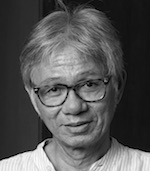
Doubtless many of us, not just in this town but in many other places, have become anxiously preoccupied by the thought of freedom.
Indeed, there would seem an anti-freedom virus going around if you observed the temperament of present-day leaders; these, by the way, are no power-grabbers, as were the previous kind, but leaders installed by popular vote, which is why the phenomenon is called populism, a generous, though not altogether unsuitable, description.
Strictly, populism is a kind of party movement in itself, as such organized; it’s not people making an accidental common choice.
At any rate, we have, as it happens, an example of each kind. Of the previous kind, there was Ferdinand Marcos, who simply took power one day and ruled for 14 years as a martial-law dictator. And of the present kind, there’s Rodrigo Duterte, who received his popular mandate under no pretense; those who may regret having voted for him have no excuse: from the beginning, he has not only professed idolatry for Marcos, but anointed Ferdinand Jr. as his successor.
The phenomenon proving intractable, it is put down to "something in the air", and, World Press Freedom Day falling around this time, it should particularly concern the very profession called upon by the Constitution to stand up to the likes of Duterte and Marcos – the press.
As a journalist who has known no other profession, thus always anxious for self-assurance and jealous with his freedom, I seize freedom as a birthright. Admittedly, freedom does not work so simplistically; it has to be fought for, constantly. Anyway, what choice do I really have? What choice does the press have?

Enemy of freedom
On May 3, the day declared by the United Nations as World Press Freedom Day, two journalists asked me for a meeting for the same day for whatever I, as an old hand, might have to say of any worth about press freedom. One came, the other cancelled, saying “they” – whom I took to be his superiors – voted down, “for obvious reasons”, his idea for a commemorative piece.
The reasons are not really so obvious to me, but, observing how the press covers President Duterte, I may have an idea. I’ve watched the press let him say anything little challenged. If only it felt less cowed and probed more, his word might just prove not good enough, if not outright inaccurate.
As it is, much of his word stands as he has passed it off, as fact – drugs are the plague of the times and that plague translates into 3 million addicts and, until those 3 million are exterminated, this nation will continue to languish in poverty (where did he get that number when the last credibly sourced one was 1.8 million?); or as credible promise – 8 trillion pesos will be spent on infrastructure during his six-year term (where will he get that money?) and there will be no poor Filipino by 2040 (wouldn’t he be safely dead by then?).
To be sure, Duterte could be an intimidating figure – profane, narcissistic, authoritarian. But then he is precisely the sort of character press freedom is ranged against. In fact he personifies power, the natural enemy of freedom, in the extreme.
And, under Duterte’s draconian regime, press freedom in particular is under siege. He keeps shoving it, and it keeps retreating, not even digging in, or defending, much less fighting back.
Yes, indeed, part of the exercise of any democratic freedom is fighting back, and, for the press it consists in asking questions in the very least. As one newspaper motto goes, “If you ask no questions you will be told no truths.”– Rappler.com